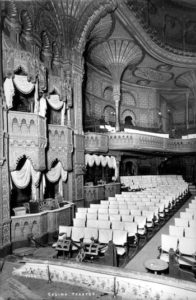
African Grove Theater(Mercer street location)
*This date celebrates the origin of the African Grove Theater in 1821. Both ship stewards, William Alexander Brown, and James Hewlett founded the theater.
They traveled to England and the Caribbean through their work, so they had a broader opportunity to see theater than the typical New Yorker and cosmopolitan experience. The West-Indies-born Brown left a job on a Liverpool ship and bought a house in New York at 38 Thompson Street. At the start, Brown held the African Grove in his backyard, offering food and drink, poetry, and short drama pieces. At the suggestion of Hewlett, an entertainer, and a regular customer, together they hired other Black actors.
Eventually located on Mercer and Bleecker Streets, the Company was part of a growing community of free Blacks who put on productions. The theater's repertoire drew heavily on Shakespeare, with comic entr'actes. In its seven years, the venue hosted Black productions of ballets, plays, and ballad operas enhanced by musical performances. These included Shakespeare and original plays (including The Drama of King Shotoway, which called for a slave rebellion) in 1823.
White audience members were limited to a separate section because, in the words of the theater's management, "Whites do not know how to conduct themselves at entertainments for ladies and gentlemen of color." The most popular plays were Richard III and Othello. James Hewlett was the first Black man of record to play the leading role in Othello.
In 1828, the city closed the theater after complaints about rowdy behavior. At least one observer blamed the trouble on white patrons in the special area reserved for them.